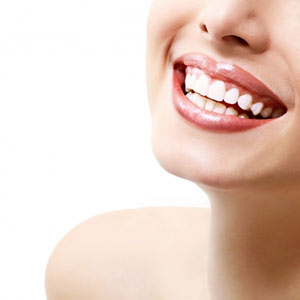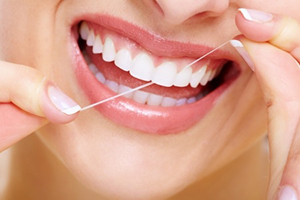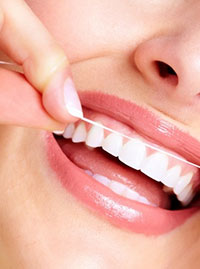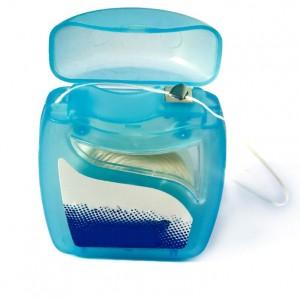World Oral Health Day Campaign
March 27th, 2017

Healthier mouths achieve happier lives — that’s the motto of the World Oral Health Day campaign. The year-long campaign is launched every year on March 20th as part of a movement to create more awareness about the importance of having good oral health. The goal is to bring together all members of communities — government, health associations, and the public, to work toward preventing oral disease and maintaining mouth health.
The History of The World Oral Health Day Campaign
Although March 20, 2013 was the first date the campaign was widely recognized, it had its roots further back to 2007. The campaign was started by FDI World Dental Federation, a worldwide organization of dental professionals representing over 135 countries. The first celebration had originally taken place in September, but was later moved to March 20 for two reasons – September conflicted with an important Dental Congress meeting of the organization, and the significance of the numbers “32” and “20” could be represented in the date March 20, or 3/20. (Adults should have 32 healthy natural teeth, and babies or seniors should have 20).
Each year, the campaign focuses on a specific theme to target awareness and improvement efforts in that area. Past themes have included:
2013: Healthy Teeth for a Healthy Life
2014: Celebrating Healthy Smiles
2015: Smile for Life!
2016: Healthy mouth, Healthy Body
Each theme is specific enough to spark focused action but broad enough to be able to include individuals from all walks of life within its significance. The first year’s theme in 2013, for example, focused on the recognition that oral health problems can be just as lethal as other risk factors for chronic disease. Last year’s theme, “Healthy Mouth, Healthy Body” focused on a holistic view of oral health being one in the same as overall health.
Participating organizations get access to the campaign website, where they can get promotional materials such as posters, logos, and more to raise awareness of the celebration. Each year, the number of countries taking part in the campaign continues to increase, which shows that a growing number of world leaders are recognizing oral health to be important.
World Oral Health Day 2017 Campaign: Live Mouth Smart
This year’s theme is “Live Mouth Smart” — understanding that your oral health can affect your quality of life now and later on. This campaign focuses on four main points: safeguarding your oral health, avoiding risk factors, understanding that oral health is more than just a nice smile, and getting involved with the campaign’s activities. Major partners sponsor events all over the world to help spread the word. This year in Nigeria, for example, Pepsodent sponsored a “Health Walk,” which, as part of the “Brush Day and Night Campaign” will seek to educate millions of Nigerian families on best oral health practices.
The World Oral Health Day Campaign is also being celebrated widely on social media, with the hashtags #WOHD17 and #LiveMouthSmart. Premade headers are available on their website so people can show their support online. Posters and other pamphlets or resources are available for use on the website as well.
Although March 20, 2017, is the official launch date of this campaign, the message of fostering and sustaining good oral health goes on all year. The FDI World Dental Federation has already created a sense of urgency around the issue of oral health, and the campaign and movement will hopefully continue to grow and change habits and lives of many individuals around the world.
If you have any questions about how to take care of your teeth, or if you’d like to book an appointment with Chicago’s number one dentistry, Water Tower Dental Care, contact us today.



 Flossing is one of the more overlooked (and frequently skipped) steps to good dental hygiene. Dentists agree it’s an essential part of dental care. But if it seems like your floss is getting stuck between your teeth more often than your food does, it’s tempting just to brush your teeth and skip flossing. Don’t do it!
Flossing is one of the more overlooked (and frequently skipped) steps to good dental hygiene. Dentists agree it’s an essential part of dental care. But if it seems like your floss is getting stuck between your teeth more often than your food does, it’s tempting just to brush your teeth and skip flossing. Don’t do it! When you’re fast asleep, the last thing you’re thinking about is your teeth. (Unless you’re having a dental dream, of course.) So it’s important to make sure that your teeth are well protected before you hit the hay for a long night of sleep. We’ve put together a short checklist that you can use every night before you go to bed to keep your teeth protected all night long.
When you’re fast asleep, the last thing you’re thinking about is your teeth. (Unless you’re having a dental dream, of course.) So it’s important to make sure that your teeth are well protected before you hit the hay for a long night of sleep. We’ve put together a short checklist that you can use every night before you go to bed to keep your teeth protected all night long. Flossing has been making headlines recently thanks to the U.S. departments of Health and Human Services Agriculture’s Dietary Guidelines for Americans. The most recently released guidelines did not include flossing, which was once a recommended activity for daily health. But does this mean
Flossing has been making headlines recently thanks to the U.S. departments of Health and Human Services Agriculture’s Dietary Guidelines for Americans. The most recently released guidelines did not include flossing, which was once a recommended activity for daily health. But does this mean  Think
Think  Everyone hates teeth discoloration, which is why whitening strips are so popular. But what do you do when the discoloration appears in the form of white spots on your teeth? Although these spots are primarily a cosmetic concern, they can affect oral health and should be treated.
Everyone hates teeth discoloration, which is why whitening strips are so popular. But what do you do when the discoloration appears in the form of white spots on your teeth? Although these spots are primarily a cosmetic concern, they can affect oral health and should be treated.
 The last thing you want is yellow teeth after years of wearing braces. But unfortunately, it’s a very common occurrence. If you don’t take care of your mouth while you’re wearing braces, you might be surprised to see white squares where your braces were on yellow-stained teeth after your dentist removes them. Thankfully, it’s easy to avoid this experience. Here are some reasons why people get yellow teeth after braces and how to prevent this from happening. We’ll also talk about how you can fix stained teeth after braces.
The last thing you want is yellow teeth after years of wearing braces. But unfortunately, it’s a very common occurrence. If you don’t take care of your mouth while you’re wearing braces, you might be surprised to see white squares where your braces were on yellow-stained teeth after your dentist removes them. Thankfully, it’s easy to avoid this experience. Here are some reasons why people get yellow teeth after braces and how to prevent this from happening. We’ll also talk about how you can fix stained teeth after braces. Many people who wear braces are worried about keeping their teeth white. After all, cleaning your teeth is much more difficult with braces, and you can’t really use teeth-whitening products on the part of your teeth that’s covered up. What you can do, though, is prevent your teeth from discoloring. Find out how to do this with these 11 easy tips from our dental experts.
Many people who wear braces are worried about keeping their teeth white. After all, cleaning your teeth is much more difficult with braces, and you can’t really use teeth-whitening products on the part of your teeth that’s covered up. What you can do, though, is prevent your teeth from discoloring. Find out how to do this with these 11 easy tips from our dental experts. When it comes to choosing dental floss, there are a lot of options out there. Picking the right type of floss will make your flossing experience easy, smooth, fast and effective. We here at Water Tower Dental Care are here to help break down all of the different choices so that you can choose the best floss for your teeth.
When it comes to choosing dental floss, there are a lot of options out there. Picking the right type of floss will make your flossing experience easy, smooth, fast and effective. We here at Water Tower Dental Care are here to help break down all of the different choices so that you can choose the best floss for your teeth. Many people are reluctant to floss, for one reason or another. However one convinces themselves, the reasons one avoids flossing is probably wrong. There are many myths about flossing that can easily be busted with a simple explanation. These are nine myths that tend to keep people from flossing, but should stop no one.
Many people are reluctant to floss, for one reason or another. However one convinces themselves, the reasons one avoids flossing is probably wrong. There are many myths about flossing that can easily be busted with a simple explanation. These are nine myths that tend to keep people from flossing, but should stop no one.
 Next to brushing, flossing your teeth is the most important daily practice for great oral health. It helps scrape the plaque off the sides of your teeth and remove harmful bacteria from your gums. However, many of us make common mistakes that keep us from doing the best floss job possible. Thankfully, all of these mistakes are easily fixable, and after a short read, you can better your technique and ensure healthy gums and shining teeth.
Next to brushing, flossing your teeth is the most important daily practice for great oral health. It helps scrape the plaque off the sides of your teeth and remove harmful bacteria from your gums. However, many of us make common mistakes that keep us from doing the best floss job possible. Thankfully, all of these mistakes are easily fixable, and after a short read, you can better your technique and ensure healthy gums and shining teeth. While listing out your New Years resolutions this time around, consider adding a few resolutions for your health, and specifically, your mouth. Keeping your teeth, gums, and tongue in good shape can help you in the years to come. Practicing good oral hygiene will help you look and feel good, along with allow you to avoid major dental surgeries and complications in the future. Here are 5 tips you can easily make into New Years resolutions for a better, healthier smile.
While listing out your New Years resolutions this time around, consider adding a few resolutions for your health, and specifically, your mouth. Keeping your teeth, gums, and tongue in good shape can help you in the years to come. Practicing good oral hygiene will help you look and feel good, along with allow you to avoid major dental surgeries and complications in the future. Here are 5 tips you can easily make into New Years resolutions for a better, healthier smile. An interesting question that arises in our office from time to time from concerned patients is if they can potentially floss too much and cause damage to their teeth. Flossing is one of the most important oral hygiene practices a person should perform. It helps clear out plaque and bacteria build up between the teeth and gums that a normal toothbrush cannot reach. It may be surprising to read that you can, in fact, floss too much. However, we encourage you to read further to understand exactly what that means.
An interesting question that arises in our office from time to time from concerned patients is if they can potentially floss too much and cause damage to their teeth. Flossing is one of the most important oral hygiene practices a person should perform. It helps clear out plaque and bacteria build up between the teeth and gums that a normal toothbrush cannot reach. It may be surprising to read that you can, in fact, floss too much. However, we encourage you to read further to understand exactly what that means. Mouthwash is an essential key to proper oral hygiene. However, many Americans misuse the product, either by using too much, too little, or often not using it for the right amount of time. To ensure that you’re using the proper mouthwash practices, we would like to offer you this simple guide to using mouthwash.
Mouthwash is an essential key to proper oral hygiene. However, many Americans misuse the product, either by using too much, too little, or often not using it for the right amount of time. To ensure that you’re using the proper mouthwash practices, we would like to offer you this simple guide to using mouthwash. Over half of American adults have had or currently suffer from periodontal disease, also known as gum disease. There are many ways, however, that you can rebuild your gums including proper oral care and eating the right kinds of foods.
Over half of American adults have had or currently suffer from periodontal disease, also known as gum disease. There are many ways, however, that you can rebuild your gums including proper oral care and eating the right kinds of foods. Flossing is an important part of dental hygiene. One should consider it just as beneficial as brushing their teeth in the fight to prevent plaque, cavities, and gingivitis. However, from last week's post:
Flossing is an important part of dental hygiene. One should consider it just as beneficial as brushing their teeth in the fight to prevent plaque, cavities, and gingivitis. However, from last week's post: 




 Website Powered by Sesame 24-7™
Website Powered by Sesame 24-7™